- News
- Reviews
- Bikes
- Accessories
- Accessories - misc
- Computer mounts
- Bags
- Bar ends
- Bike bags & cases
- Bottle cages
- Bottles
- Cameras
- Car racks
- Child seats
- Computers
- Glasses
- GPS units
- Helmets
- Lights - front
- Lights - rear
- Lights - sets
- Locks
- Mirrors
- Mudguards
- Racks
- Pumps & CO2 inflators
- Puncture kits
- Reflectives
- Smart watches
- Stands and racks
- Trailers
- Clothing
- Components
- Bar tape & grips
- Bottom brackets
- Brake & gear cables
- Brake & STI levers
- Brake pads & spares
- Brakes
- Cassettes & freewheels
- Chains
- Chainsets & chainrings
- Derailleurs - front
- Derailleurs - rear
- Forks
- Gear levers & shifters
- Groupsets
- Handlebars & extensions
- Headsets
- Hubs
- Inner tubes
- Pedals
- Quick releases & skewers
- Saddles
- Seatposts
- Stems
- Wheels
- Tyres
- Health, fitness and nutrition
- Tools and workshop
- Miscellaneous
- Buyers Guides
- Features
- Forum
- Recommends
- Podcast
review
 2023 Zefal Bike Taxi tow rope.jpg
2023 Zefal Bike Taxi tow rope.jpg£49.99
VERDICT:
Great addition to family rides, and possible other pairings, let down slightly by the frustrating fitting and low-quality strap
Good rope length
Straightforward for younger riders to attach
Suitable for use on a dropper post
Low-quality hook & loop
Brain teaser to mount
Weight:
146g
Contact:
At road.cc every product is thoroughly tested for as long as it takes to get a proper insight into how well it works. Our reviewers are experienced cyclists that we trust to be objective. While we strive to ensure that opinions expressed are backed up by facts, reviews are by their nature an informed opinion, not a definitive verdict. We don't intentionally try to break anything (except locks) but we do try to look for weak points in any design. The overall score is not just an average of the other scores: it reflects both a product's function and value – with value determined by how a product compares with items of similar spec, quality, and price.
What the road.cc scores meanGood scores are more common than bad, because fortunately good products are more common than bad.
- Exceptional
- Excellent
- Very Good
- Good
- Quite good
- Average
- Not so good
- Poor
- Bad
- Appalling
The Zefal Bike Taxi Tow Rope is a retractable high-strength polyamide cable designed primarily for helping younger riders. I've found it a good addition that has allowed me to ride places with my children that would otherwise not be possible. It does have its limitations, however, and mounting it to the saddle can feel like a challenge.
Looking to get your young 'uns out on their own bike? Check out our guide to the best kids' bikes for what to buy.
The spring-loaded cable is housed inside a plastic box fastened to the saddle using a section of Velcro-style hook and loop to secure it. You use the tab to pull the tow rope out, and a reinforced loop at the end attaches to the stem of the bike being towed. Note: the bolt configuration on the stem must allow the rope loop to pass over at least one protruding bolt.
When no longer needed, the rope quickly rolls back into the case.
The primary market for this product is assisting young riders, but because of its towing weight limit of 85kg, some adults may find it useful as well. (Though other options have higher limits of 120kg and 130kg – as I'll get on to.)
Mounting issues
Mounting it for the first time wasn't easy. Using the packaging with instructions as a guide was a help, but because of the arrangement of the strap and how it is secured around the saddle rails, it's not straightforward.
Also, I chose to remove the Taxi Tow Rope when it wasn't being used, and future installations without the instruction card were still challenging.
The strap includes a backup metal clasp, which helps ensure it is locked in place safely, but the hook and loop strap (Zefal doesn't list it as Velcro) is very basic and low quality, and has already started to lose grip – something that's only likely to get worse if you intend to remove the strap when not in use, so you're continually taking it on and off. Also, given that the strap has a clasp fitted, it won't be simple to find a replacement should you need to.
Another thing to consider is if you have your saddle positioned at the very rear of the rails, as this could pose an issue for the Zefal casing, which needs a section of the rails to attach to.
Being saddle mounted does have the advantage that the Zefal will work with a dropper seatpost; I found this quite helpful, being able to lower the rope to make it easier for the rider being towed to grab, and also giving me more balance while stopped. One competitor to the Zefal Tow Rope attaches with zip-ties to the seatpost; while that might have some benefits, it can also reduce the number of bikes it will fit.
Both my children grasped how to use the Tow Rope quickly. The small pull section with the Zefal logo is easy to use, and both children were able to pull the cord, secure it in place over the stem bolts, and remove it, which is done when stationary. To make the connection secure it does need to be used with a stem that has protruding bolt sections to the rear, but this covers the majority on the market.
Setting off needs to be done with some care, to avoid jerking the following rider, but once we'd got moving I found it quite easy to keep things smooth. The rope is two metres long which gives enough space between the bikes to allow for some adjustment, where there are changes in the gradient or terrain.
The area where I live is very hilly, and options for flatter riding off the major roads are limited, but using the Taxi Tow Rope has made it possible to head further afield, onto quieter and hillier roads. We've had many memorable rides and adventures that would otherwise not be possible. With such simple attachment and removal, it takes just the briefest of pauses to use, not adding significant time to the ride.
I fitted the rope to an unassisted mountain bike, although there are no restrictions on using it with an e-bike. For me, adding around 30-40kg behind made a noticeable difference to speed, especially on the steeper sections.
There are two weight limits in place, one for the rider towing and one for the rider being towed. Zefal gives a limit of 116kg for the rider towing, and 95kg for the combined weight of the rider/bike being towed (presumably the first figure is for bike and rider too).
These figures are lower than the limits for two competitors: the Trax Pro, which has a 130kg towing limit, and the Kommit Zugsystem, which has 120kg. Neither of these state a maximum weight for the rider at the front towing.
Price-wise, the Zefal sits between the Trax Pro at £45.99, and the Kommit Zugsystem at £64.99. Neither of those rely on any Velcro-style strap, though, which adds appeal in my eyes.
Conclusions
If you are likely to leave the Taxi Tow Rope mounted, the frustrations with attaching it and the low-quality strap will be less of an issue, but if you want to remove and refit it frequently, it can be a little annoying.
That aside, the Tow Rope has provided some genuinely memorable rides, allowing us to go to quieter places, using hillier tracks and trails than I would ever think possible before. We have been through many forests looking for the Gruffalo, to the top of my favourite mountain with a 270-metre climb overlooking a valley below, and visiting family, something that would otherwise not have been possible by bike. Once on, using it was very easy, and its maximum weight limits could make it suited to more than just pulling younger riders.
Verdict
Great addition to family rides, and possible other pairings, let down slightly by the frustrating fitting and low-quality strap
If you're thinking of buying this product using a cashback deal why not use the road.cc Top Cashback page and get some top cashback while helping to support your favourite independent cycling website
road.cc test report
Make and model: Zefal Bike Taxi Tow Rope
Size tested: 2m
Tell us what the product is for and who it's aimed at. What do the manufacturers say about it? How does that compare to your own feelings about it?
Zefal says: "This bike tow rope has been designed to make family cycling, especially mountain biking, more fun and enjoyable for everyone. The Bike Taxi is only to be used on paths, where it is easy to take your child up climbs and thus eliminate physical differences.
The Bike Taxi is simply installed on the saddle rails of the person towing and is very quick to attach to the stem of the towed bike. Once at the top, the child can easily unhook it. The rope is made of high density polyethylene fibre, which is highly resistant to abrasion, and is self-retracting, without risk.
The Bike Taxi is suitable for all types of bicycles and the person towing can use an E-bike"
Tell us some more about the technical aspects of the product?
Zefal lists:
Weight - 140 g
Material - Polyamide. Rope: high density polyethylene.
Dimensions - 85 x 70 x 47 mm
Maximum load - 95 kg
Rope length - 2 m
Rate the product for quality of construction:
6/10
The main security strap is a low-quality hook and loop.
Rate the product for performance:
7/10
With the exception of the attachment, it works well.
Rate the product for durability:
5/10
Low-quality Velcro is not going to last long with repeated use. With a metal buckle at the end of the strap, finding a replacement will not be straightforward.
Rate the product for weight (if applicable)
8/10
Rate the product for value:
5/10
It's on a par with others – a few quid more than the Trax option, and £15 or so less than the Kommit. Neither of those use any hook and loop strap, though.
Tell us how the product performed overall when used for its designed purpose
Mounting it was quite frustrating, and I needed to check the method each time to be sure. Once fitted it worked well, with enough length, and a system that was easy for my son to use.
Tell us what you particularly liked about the product
The 2m length was perfect, and the ease of being able to mount the loop in a suitable place.
Tell us what you particularly disliked about the product
Basic, low-quality strap, and the mount isn't the simplest, feeling like a brain-teaser puzzle to attach.
How does the price compare to that of similar products in the market, including ones recently tested on road.cc?
There are two other main rivals with a retractable cord: the Trax Pro is €49.95 (around £45), and the Kommit Zugsystem is £64.99.
Did you enjoy using the product? Using it, yes, but not attaching it.
Would you consider buying the product? Probably not against the other options, which don't rely on any Velcro-style strap.
Would you recommend the product to a friend? Maybe, but there are other options that might be better depending on the bike it's mounted to, and if it is likely to be removed/refitted on a regular basis.
Use this box to explain your overall score
Once mounted the Zefal Bike Taxi Tow Rope works well, and we found it easy to use. Mounting is something of a puzzle, though, and the hook and loop strap isn't very good quality. The Zefal also has a lower weight limit than some, which might be a factor for some people.
About the tester
Age: 35
I usually ride: My best bike is: Cannondale SystemSix
I've been riding for: Over 20 years I ride: Every day I would class myself as: Expert
I regularly do the following types of riding: road racing, cyclo cross, sportives, mtb, Lots of gravel style riding
Matt is an endurance nut who loves big rides and big events. He's a former full-time racer and 24hr event specialist, but now is also happy riding off-road on gravel bikes or XC mountain bikes and exploring the mountains and hills of Mid Wales.
Latest Comments
- don simon fbpe 4 min 10 sec ago
Who'd've thought that a certain whinging section (right whingers get uppity for calling them what they are) of society would resort to division,...
- Smoggysteve 6 min 47 sec ago
Sorry, I don't buy the argument about large cars. I drive an Audi Q5, a car I bought purely due to my partner having a disability. It's easy to...
- perce 20 min 47 sec ago
Aw bless. My wife and I usually go to our local M&S cafe once a week for a bite to eat, usually Wednesday but sometimes Thursday. I usually...
- Exup 1 hour 36 min ago
At least some justice is being done........
- BIRMINGHAMisaDUMP 1 hour 46 min ago
I imagine the Police treat bike theft as an insurance issue rather than a criminal issue. Can't blame them to be honest. The best thing is to use...
- David9694 2 hours 13 min ago
Police launch investigation into destruction of barber shop in Hythe High Street...
- ktache 10 hours 43 min ago
I'd love for them to put a number on that "inappropriate speed"
- Nick T 11 hours 35 min ago
They need to use some harder material for the cleat retention clip really, that's worn out long before any bearing has had a chance to fail on...
- yiipeeia 14 hours 26 min ago
I am 67 and I cycle with two groups during the year The Haddenham Easyriders International who ride during the summer on Thursday evenings, and The...
- don simon fbpe 14 hours 36 min ago
Brexit is a wholly selfish act....
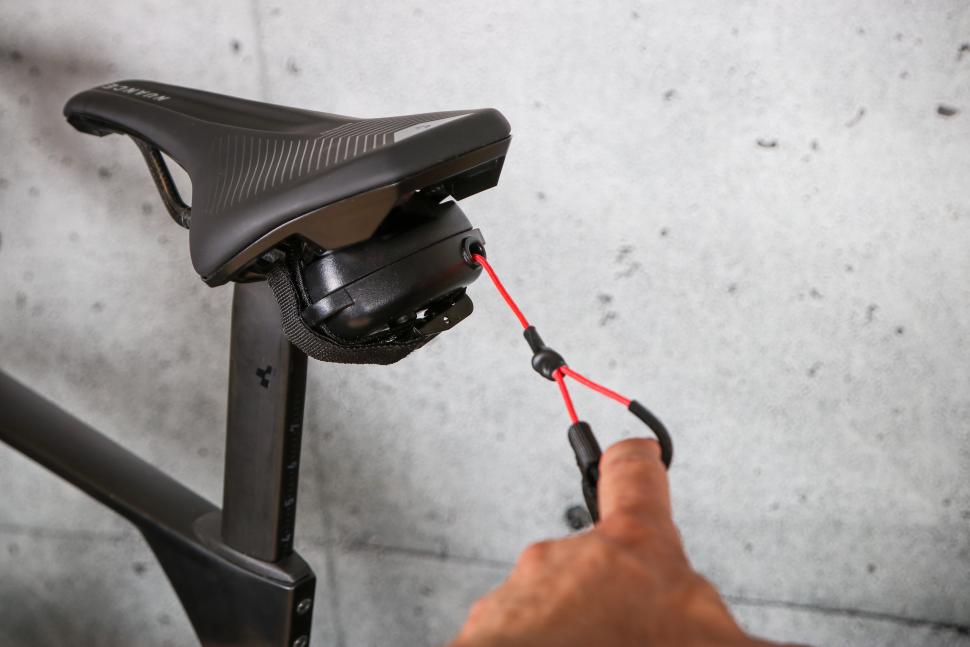












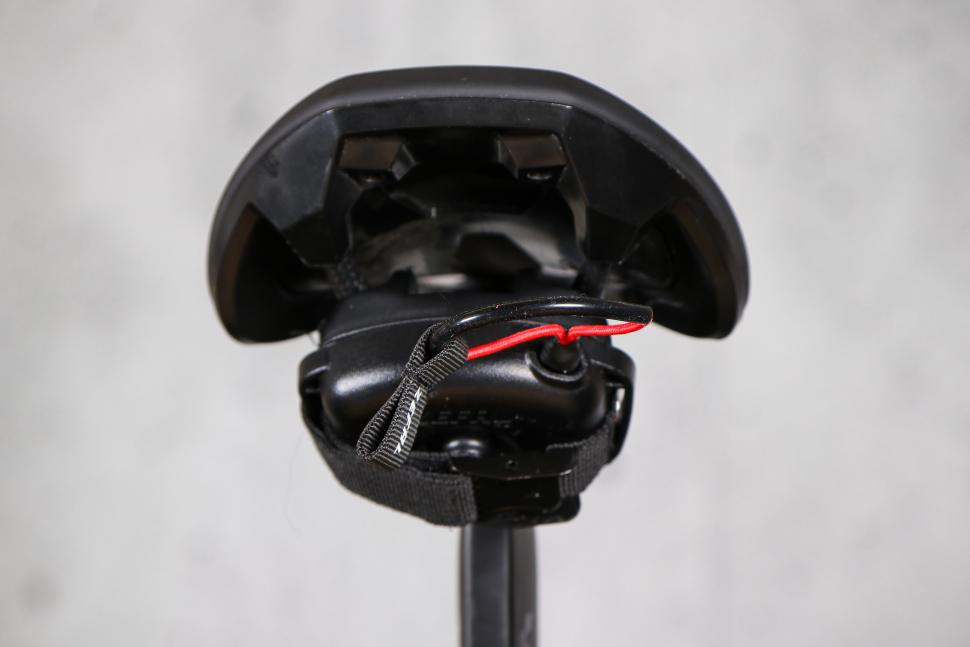
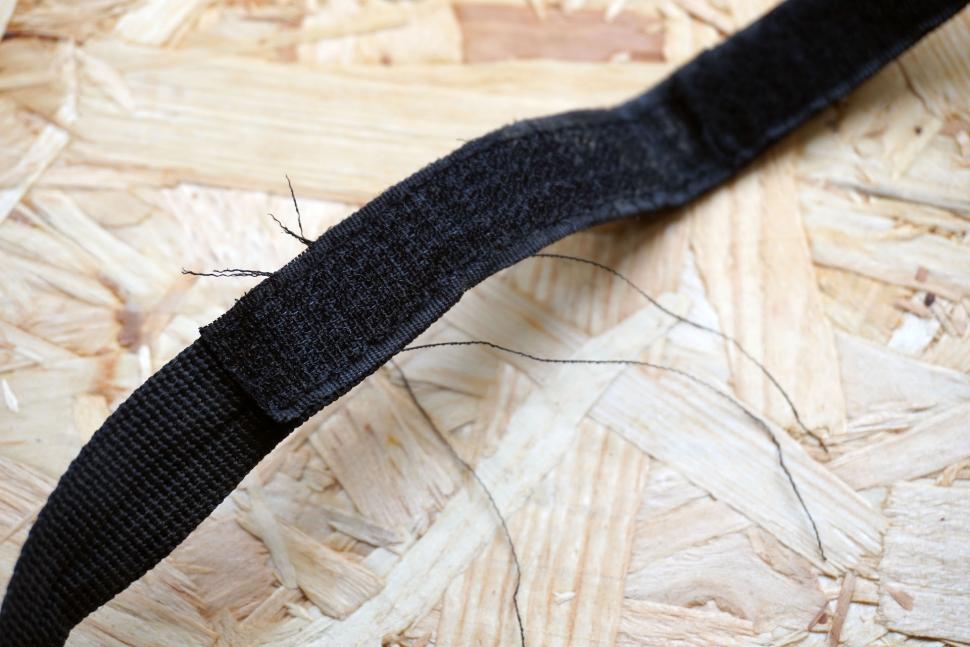
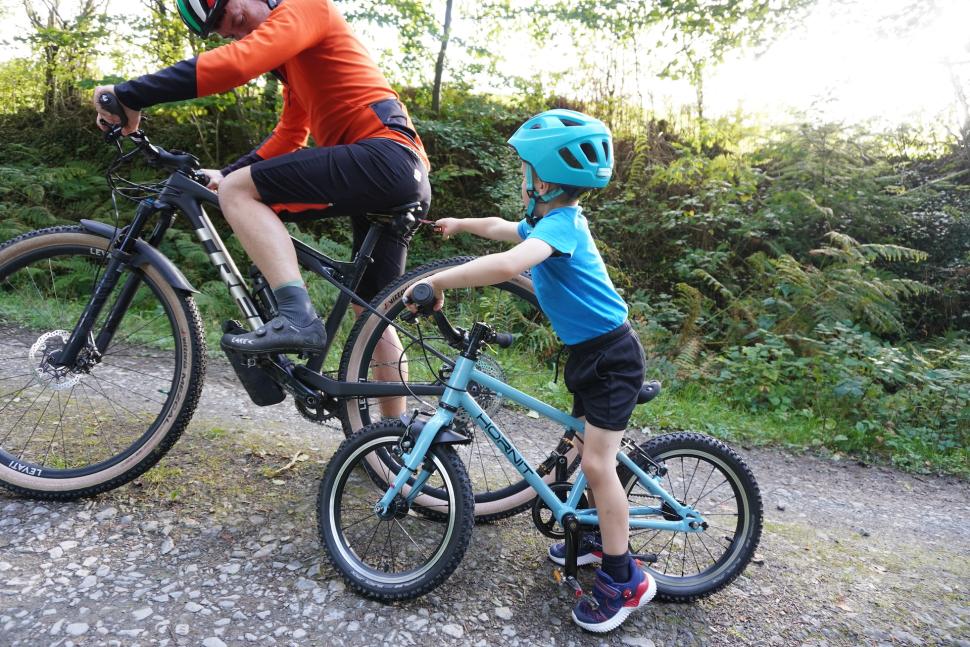
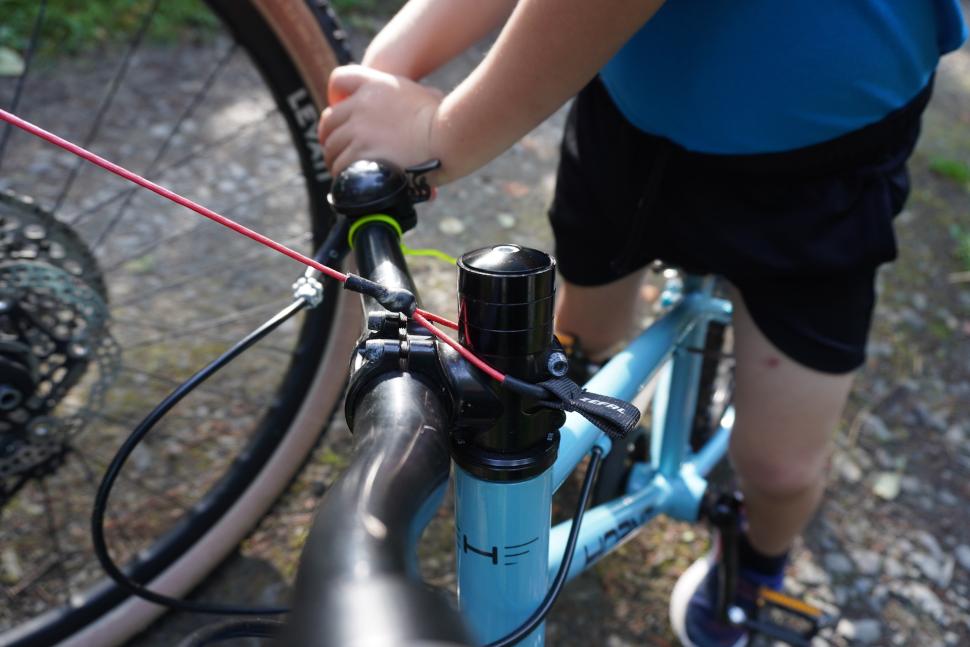
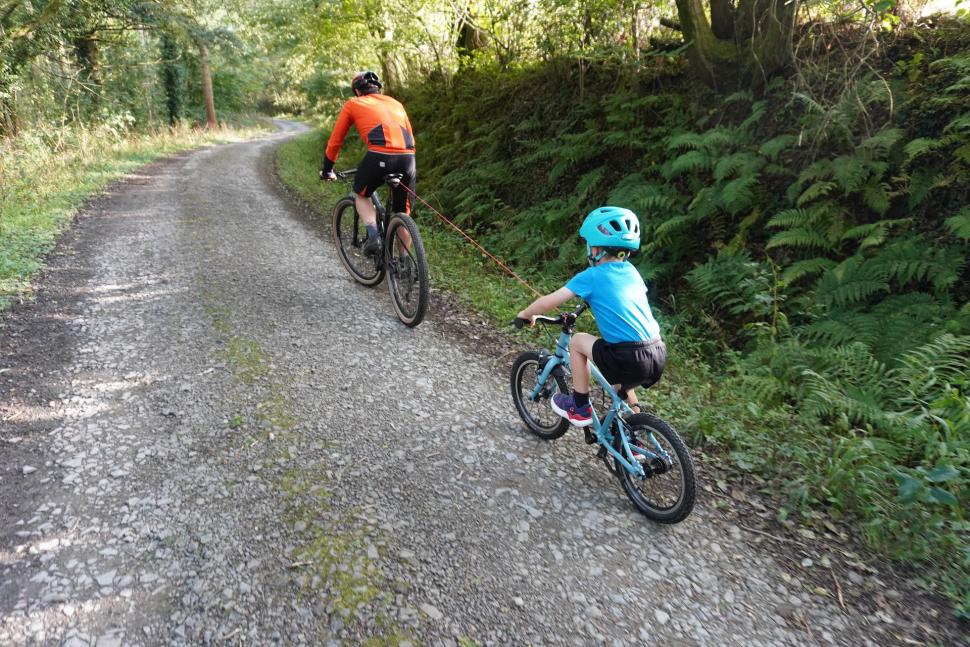
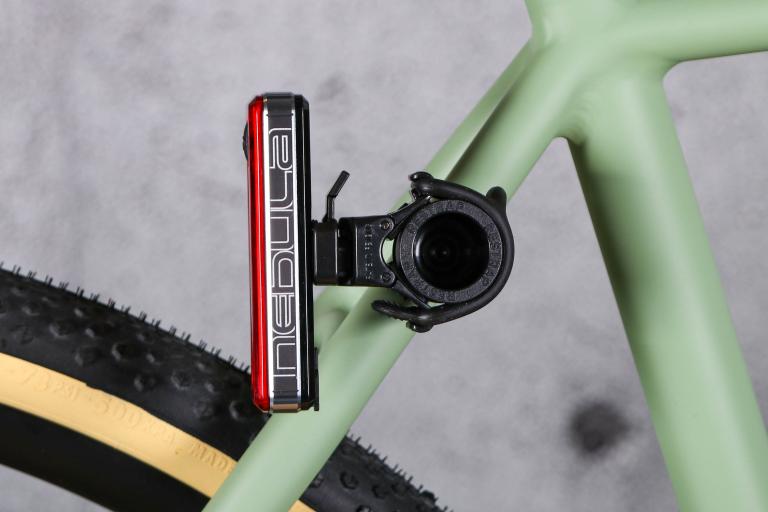
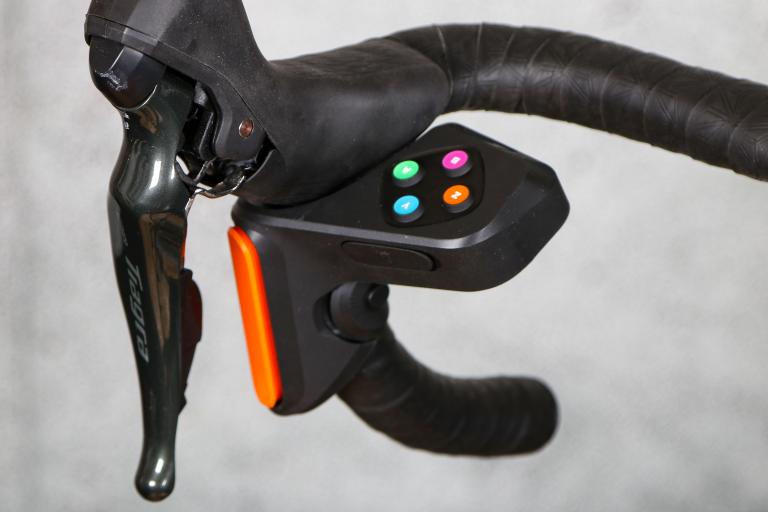
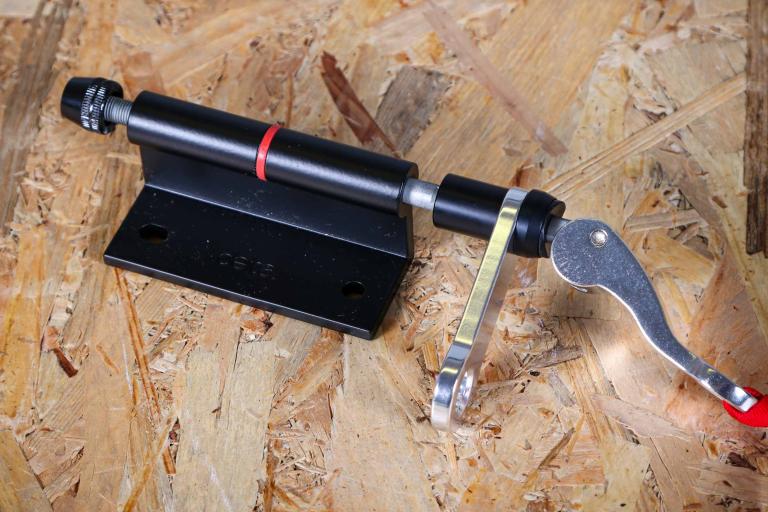
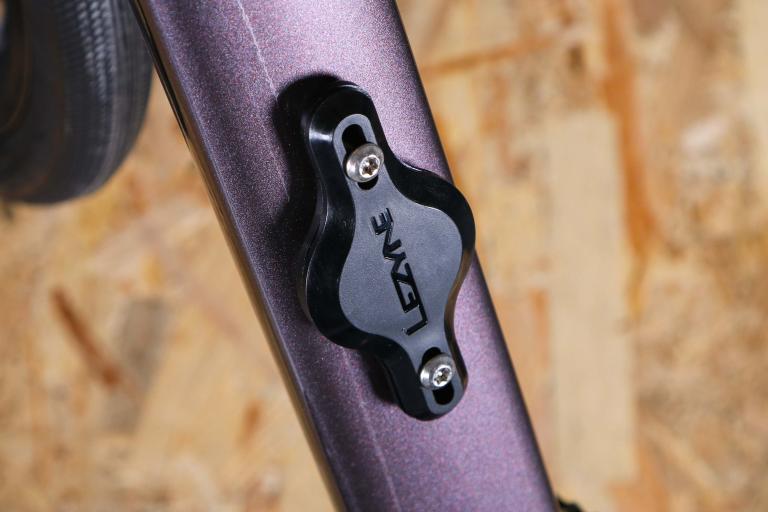
Add new comment
16 comments
I used a TrailGator when my son was small and it was great (but very heavy). He loved it and was constantly telling me to go faster, now he's an adult I'm usually telling him to slow down. It's currently sat in the shed awaiting my granddaughters first bike.
Could someone with a better grasp of physics than me advise what happens if the rider in front has to brake sharply and the rider behind is not paying the sort of attention she should be? Untethered, I tend to ride with her on my inside in order to avoid the sort of collision I imagine would occur.
Also, wouldn't the rider behind have something of a tendency to swing out when being towed around a corner?
This seems like it could solve some problems for me, but I'm trying to work out where and how it would be safe to use it.
I think you would definitely, unlike with the TrailGator as described above by NTTEU and other solid towing systems, have to have a towee with whom you had confidence in their ability to pay attention, to steer and to brake competently. I think it's probably more of a device that you would carry with you to give an already competent child cyclist a pull up a hill or a bit of extra assistance when they get tired rather than the "fit it and forget it" style of the solid systems.
Thanks - I'd missed the bit in the article where it said it was for use on paths/helping with climbs, which should have given me a clue.
I found the TrailGator type of thing I had too flexy for me to dare using with the actual child attached, but it was a cheap version.
She's noticeably better at paying attention etc on the road than she is on pavement or park, presumably because it feels more serious/dangerous to her. I'd worry that being towed along might create a false sense of security, and so for that reason I'm out. She'll need to be towing me in a couple of years on current projections anyway.
As an ebike rider, I hope my club mates don't see this ...
Why would there be any weight limit for the bike/rider in front? I've been trying to think of any reason why a heavier tower would put any extra strain on the rope, can't come up with one.
Someone weighing twice as much as you but with twice the power output can put (roughly) twice the force on the rope and accellerate the towed rider faster.
But that's got nothing to do with rider weight, it's just rider power; Pogacar weighs almost 20kg less than me but could obviously put out at least twice the power. The weight of the rider can't influence the force they exert on the rope, only their power output can.
Well, sure, but how many people know their power capability? Rohloff specs a minimum gear ratio so that people don't rip their hubs apart, but a lighter, weaker cyclist can get away with a much lower ratio. If they specified a maximum input torque people would have no idea whether it was suitable for them.
This feels like a pretty flimsy explanation at best. I'm not convinced there is likely to be much correlation between power and weight among the general population, and certainly not enough of a correlation for a weight limit to make any kind of sense when you take into account all the other factors that would influence the force exerted on the cable (gradient, terrain etc.). And the review indicates there's no restriction on using it with e-bikes, so there's another ~250W power output with minimal extra weight.
Well, I am open to the possibility that they are bad at physics.
Acceleration is related to force and mass. The force applied by the heavier rider is accelerating their own mass as well as the towed rider.
As a heavy bloke, I don't need a beefed up saddle pack (which I'm also towing, despite its lack of rolling resistance). I simply don't understand this limit.
Matt rather modestly doesn't mention anything about his own level of fitness, and I do wonder if that might be relevant to the experience. Perhaps it would be good to hear from a tow-er with less impressive endurance...
I don't see how that is hugely relevant to the review. It's inherent in the nature of a tow device that if you are towing someone else around, it's going to be harder work than just cycling by yourself! The tow device itself isn't adding any additional drag and only minimal additional weight, so the additional exertion is solely that required to pull the other person, and that won't vary between tow device. A review that said "I didn't like it beause it's hard work pulling my fat lump of a child around" wouldn't be very enlightening about how good the product is at doing its job.
.
There are so many variables that I don't think it would add anything to the review. Gradients, surfaces, and rider input from the person being towed are just a few.
I have reasonable fitness, but I am also light and that means the weight will have a bigger effect compared to a heavier rider.